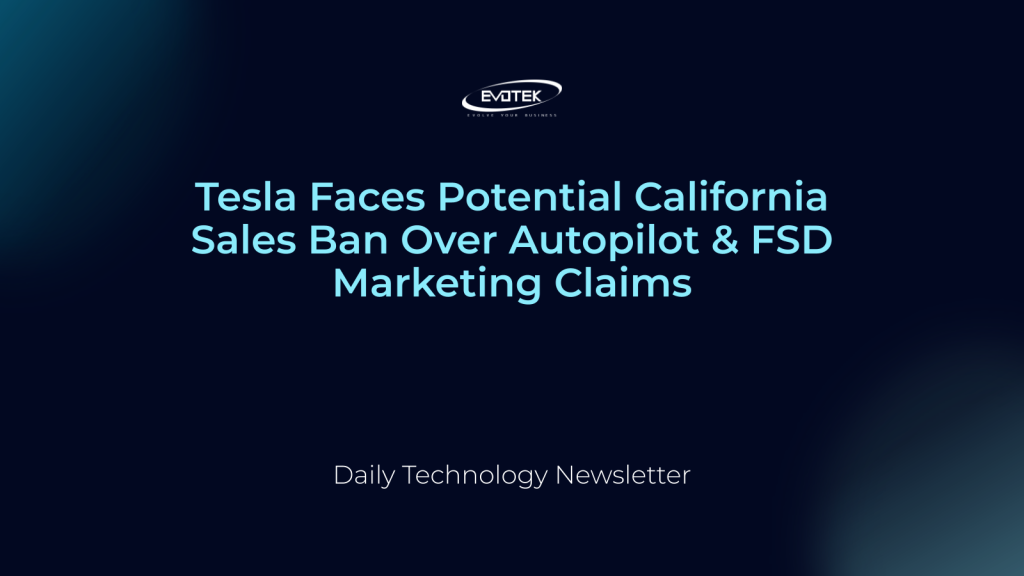California regulators are seeking to halt Tesla’s vehicle sales within the state, alleging the electric car manufacturer has engaged in deceptive marketing practices regarding its advanced driver-assistance features, Autopilot and Full Self-Driving (FSD).
The California Department of Motor Vehicles (DMV) has called on lawmakers to impose a sales ban for a minimum of 30 days, asserting that Tesla’s promotional materials inaccurately portray the capabilities of its autonomous technologies. During recent court proceedings in Oakland, a DMV attorney emphasized that Tesla’s marketing implies fully autonomous operation, which is not the reality of the vehicles.
According to DMV representative Melanie Rosario, even the names “Autopilot” and “Full Self-Driving” are inherently “misleading” and “contradictory.” Ms. Rosario further stated that the DMV has received numerous complaints from Tesla owners regarding these features, highlighting a perceived discrepancy between marketing and real-world performance.
This regulatory action is bolstered by a 2023 state law designed to prevent automakers from “deceptively naming or marketing” features related to semi-autonomous driving.
In response, Tesla’s legal team argued in court that it would be “impossible for a reasonable consumer to be misled” by their feature descriptions. The company also points to disclosures on its official website, which clearly state that Autopilot and FSD features “require active driver supervision” and do not render the vehicle fully autonomous.
The legal challenge in California comes amidst heightened scrutiny over Tesla’s autonomous technologies. A separate court case in Florida recently featured testimony from a Tesla driver involved in a fatal 2019 accident, who claims the vehicle’s Autopilot system failed to detect an impending collision. This incident is among dozens recorded by the U.S. National Highway Traffic Safety Administration (NHTSA) concerning Tesla’s Autopilot and Full Self-Driving systems.
Despite these regulatory hurdles and ongoing safety concerns, Tesla CEO Elon Musk recently reiterated ambitious plans for a widespread rollout of self-driving Robotaxis. During a recent investor call, Musk suggested that the company could potentially serve half of the U.S. population with robotaxi services by the close of 2025, “subject to regulatory approvals.”
However, market analysts remain skeptical. Paul Miller, an analyst at Forrester, noted that this crucial “caveat” of regulatory approvals is significant. Miller pointed out the lack of evidence that formal applications for these state-level regulatory processes have even commenced, indicating a potentially lengthy and complex path ahead for Tesla’s grand autonomous vision.

 日本語
日本語 한국어
한국어 Tiếng Việt
Tiếng Việt 简体中文
简体中文